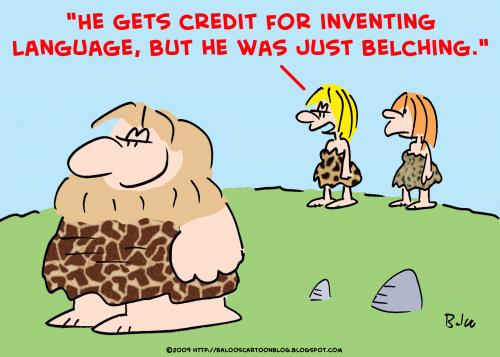Paul Whybrow
Full Member
I always send a message to my subconscious before going to sleep, asking my grey cells about what to write next, or how to tackle a plot problem. Sometimes, my brain makes useful suggestions to me in the night, as I turn over in bed. Other times, I attempt to access nocturnal ideas in the transition state between sleep and full wakefulness.
This morning, my mischievous noddle spat out one word—Thyssingness.
Puzzled as to what the hell this archaic-sounding word could possibly mean, I roused myself and went online to check. You won't be surprised to learn that it doesn't exist, though there's a Thyssing Industrial Supplies in Victoria, Australia.
I think that my brain's thesaurus got scrambled, but there have been plenty of authors who've invented words that have since entered the English language. Charles Dickens coined dozens of words, such as the creeps, devil-may-care and flummox.
William Shakespeare: supposedly invented 1,700 words, including advertising, torture and summit.
Children's authors have free rein to play with language. Lewis Carroll and Doctor Seuss invented plenty of nonsense words, as well as others that are commonly used. Dr Seuss is credited with inventing the word nerd, while Caroll thought of chortle for quietly laughing.
Science-Fiction and Fantasy authors often create whole languages for their worlds.
My Cornish Detective novels contain local expressions and words delivered in the local patois, which many readers won't be familiar with, but they're real words. For instance, holidaymakers who invade the county in summer, swarming around, are referred to as Emmets, which is Cornish for ants.
Have any of you invented words?

This morning, my mischievous noddle spat out one word—Thyssingness.
Puzzled as to what the hell this archaic-sounding word could possibly mean, I roused myself and went online to check. You won't be surprised to learn that it doesn't exist, though there's a Thyssing Industrial Supplies in Victoria, Australia.
I think that my brain's thesaurus got scrambled, but there have been plenty of authors who've invented words that have since entered the English language. Charles Dickens coined dozens of words, such as the creeps, devil-may-care and flummox.
William Shakespeare: supposedly invented 1,700 words, including advertising, torture and summit.
Children's authors have free rein to play with language. Lewis Carroll and Doctor Seuss invented plenty of nonsense words, as well as others that are commonly used. Dr Seuss is credited with inventing the word nerd, while Caroll thought of chortle for quietly laughing.
Science-Fiction and Fantasy authors often create whole languages for their worlds.
My Cornish Detective novels contain local expressions and words delivered in the local patois, which many readers won't be familiar with, but they're real words. For instance, holidaymakers who invade the county in summer, swarming around, are referred to as Emmets, which is Cornish for ants.
Have any of you invented words?

